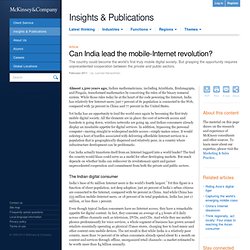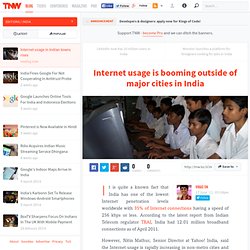

Govt wants to monitor Facebook, Twitter. N.Korean hackers hired to attack S.Korea game network. Reuters Thursday, Aug 04, 2011 SEOUL - More than 30 North Korean hackers were hired to work in China by a South Korean crime ring to steal the personal data of South Korean gamers, and channeled $5 million to their impoverished country in compensation, South Korea's police said on Thursday.

North Korea has been blamed for spreading malicious computer software that paralysed Web sites of government agencies and businesses, and for a cyber attack on a South Korean bank this year that brought down its network. Police say the hackers, who were graduates of elite North Korean universities, could have easily broken into computer networks of agencies to steal sensitive information or spread malicious software. Police said they had arrested 15 people in South Korea who recruited the hackers and set them up in China to break into a large South Korean online game network and steal its users'personal information. The Department of Defense's Newest Initiative Targets Social Media, Memes. It’s no stretch to imagine that cyberspace will likely serve as another front in the wars of the future.

But now, the Pentagon is reportedly kicking things into high gear with a new initiative which sets to track intel across social media. The program could cost up to $42 million and is currently soliciting research proposals. The new Social Media in Strategic Communication (SMISC) program was submitted under the Defense Advanced Research Projects Agency (DARPA), an arm of the Department of Defense. The goal is to “develop a new science of social networks built on an emerging technology base” to help the agency keep abreast with communication technologies, namely Twitter. Afghans Build Open-Source Internet From Trash. In light of events that occured in the Middle East earlier this year, many worry that in the future, rogue governments could cut off access to the internet as a way to control political "threats.

" Douglas Rushkoff has championed the idea that the current corporate-controlled internet is far from the open commons we pretend it is. "If we have a dream of how social media could restore peer-to-peer commerce, culture, and government, and if the current Internet is too tightly controlled to allow for it, why not build the kind of network and mechanisms to realize it? " Rushkoff asks. Sounds daunting. And expensive, right? Funded primarily by the personal savings of group members and a grant from the National Science Foundation, residents of Jalalabad have built the FabFi network: an open-source system that uses common building materials and off-the-shelf electronics to transmit wireless ethernet signals across distances of up to several miles. via Insteading Related articles:
Twitter confusion causes diplomatic incident between Malaysia and Philippines. L’Inde, superpuissance digitale qui s’ignore encore - Blogs tEchosphère. Can India lead the mobile-Internet revolution? - McKinsey Quarterly - Marketing & Sales - Digital Marketing. Almost 1,500 years ago, Indian mathematicians, including Aryabhata, Brahmagupta, and Pingala, transformed mathematics by conceiving the rules of the binary numeral system.

While those rules today lie at the heart of the code powering the Internet, India has relatively few Internet users: just 7 percent of its population is connected to the Web, compared with 32 percent in China and 77 percent in the United States. Yet India has an opportunity to lead the world once again by becoming the first truly mobile digital society. All the elements are in place: the cost of network access and handsets is going down, wireless networks are going up, and Indian consumers already display an insatiable appetite for digital services.
In addition, bypassing the personal computer—moving straight to widespread mobile access—simply makes sense. Can India actually transform itself from an Internet laggard into a world leader? The Indian digital consumer Exhibit Enlarge Development roadblocks About the author. Brésil : Twitter reconnu comme courrier des lecteurs. Quelques jours au Brésil, la semaine dernière, ont été l'occasion de plonger dans le bouillonnant univers Internet du pays (voir Google mise sur le Brésil pour affronter Facebook).

Et de faire d'inattendues découvertes, par exemple en ouvrant nonchalamment le quotidien local, Globo, échoué sur une table dans le lobby de l'hôtel: Internet usage is booming outside of major cities in India. It is quite a known fact that India has one of the lowest Internet penetration levels worldwide with 35% of Internet connections having a speed of 256 kbps or less.

According to the latest report from Indian Telecom regulator TRAI, India had 12.01 million broadband connections as of April 2011. However, Nitin Mathur, Senior Director at Yahoo! India, said the Internet usage is rapidly increasing in non-metro cities and they might dominate the Indian Internet market pretty soon, surpassing major cities like New Delhi, Bengaluru and Mumbai. Pressions, poursuites, condamnations : le lot quotidien des blogueurs russes. Reporters sans frontières condamne l’acharnement dont font preuve les autorités envers certains blogueurs.

Pressions, poursuites, condamnations, le gouvernement se livre à une véritable campagne d’intimidation contre les voix indépendantes, sous couvert de lutte contre l’extrémisme et l’antisémitisme. Le célèbre blogueur Leonid Kaganov s’est vu contraint de faire héberger son site à l’étranger en mai 2011.